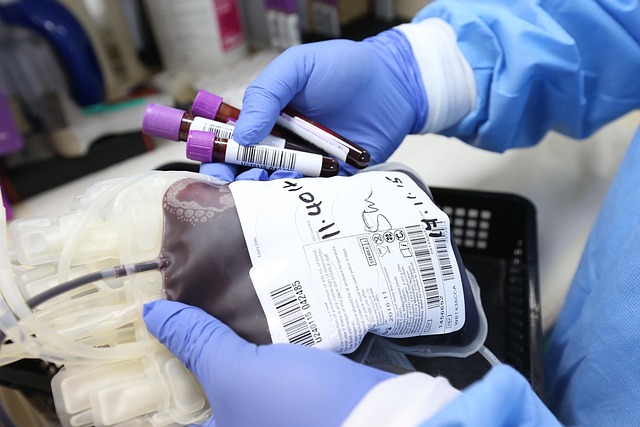Levothyroxine Side Effects: What to Know About Overmedication
Taking more levothyroxine than needed may lead to symptoms such as rapid heartbeat, restlessness, or unexpected weight loss. Understanding these effects and the importance of proper dosage can help ensure safe and effective thyroid care for better health outcomes.

What are common side effects of excessive levothyroxine use?
When too much levothyroxine is taken, it can lead to symptoms similar to hyperthyroidism, as the body experiences an excess of thyroid hormones. Common side effects linked to excessive levothyroxine use include:
-
Rapid or irregular heartbeat (tachycardia or palpitations)
-
Increased sweating and heat intolerance
-
Nervousness, anxiety, and irritability
-
Tremors, particularly in the hands
-
Insomnia or difficulty sleeping
-
Unexplained weight loss despite increased appetite
-
Frequent bowel movements or diarrhea
-
Muscle weakness or fatigue
-
Menstrual irregularities in women
These symptoms can vary in severity and may develop gradually over time as the medication accumulates in the body.
Why is maintaining the correct thyroid medication dosage crucial?
Maintaining the correct dosage of levothyroxine is vital for several reasons:
-
Optimal thyroid function: The right dose ensures that the thyroid hormone levels in the body are balanced, allowing for proper metabolism and overall health.
-
Symptom management: Correct dosing helps alleviate symptoms of hypothyroidism without causing side effects associated with overmedication.
-
Long-term health: Proper thyroid hormone levels are essential for heart health, bone density, and cognitive function.
-
Avoiding complications: Overmedication can lead to serious health issues such as osteoporosis, atrial fibrillation, or even thyrotoxicosis in severe cases.
-
Quality of life: Maintaining the right balance of thyroid hormones can significantly improve a patient’s energy levels, mood, and overall well-being.
Healthcare providers typically determine the appropriate levothyroxine dose based on factors such as age, weight, severity of hypothyroidism, and other medical conditions. Regular monitoring through blood tests is crucial to ensure the dosage remains correct over time.
What are the warning signs that may indicate overmedication risks?
Recognizing the warning signs of levothyroxine overmedication is crucial for timely intervention. Some key indicators include:
-
Unexplained weight loss: If you’re losing weight without changes to diet or exercise habits, it could be a sign of excess thyroid hormone.
-
Increased heart rate or palpitations: A consistently elevated heart rate, especially at rest, may indicate overmedication.
-
Heightened anxiety or restlessness: Feeling unusually anxious, jittery, or unable to relax could be related to excess thyroid hormones.
-
Sleep disturbances: Difficulty falling asleep or staying asleep, despite feeling tired, may be a warning sign.
-
Excessive sweating or heat intolerance: Increased sensitivity to heat or sweating more than usual can indicate overmedication.
-
Tremors: Noticeable shaking, particularly in the hands, can be a sign of too much thyroid hormone.
-
Digestive changes: Frequent bowel movements or unexplained diarrhea may occur with overmedication.
-
Mood swings or irritability: Unusual mood changes or increased irritability could be related to thyroid hormone imbalance.
If you experience any of these symptoms, it’s important to consult your healthcare provider promptly. They may need to adjust your levothyroxine dosage or run additional tests to ensure your thyroid levels are properly balanced.
How is levothyroxine dosage typically adjusted?
Levothyroxine dosage adjustment is a careful process that requires close monitoring by healthcare professionals. Here’s an overview of how dosage is typically managed:
-
Initial dosing: The starting dose is usually based on factors such as age, weight, and severity of hypothyroidism.
-
Blood tests: Regular thyroid function tests (usually every 6-8 weeks initially) are conducted to measure TSH (thyroid-stimulating hormone) and T4 (thyroxine) levels.
-
Gradual adjustments: If needed, the dose is adjusted in small increments, usually by 12.5 to 25 micrograms.
-
Monitoring symptoms: Healthcare providers consider both lab results and patient-reported symptoms when making adjustments.
-
Long-term follow-up: Once a stable dose is achieved, less frequent monitoring (every 6-12 months) is typically required.
It’s crucial for patients to communicate any changes in symptoms or side effects to their healthcare provider to ensure timely adjustments and optimal thyroid management.
Conclusion
Understanding the potential side effects of levothyroxine overmedication and recognizing the warning signs are crucial aspects of thyroid treatment. Maintaining the correct dosage is essential for optimal thyroid function and overall health. By working closely with healthcare providers and staying attentive to any changes in symptoms, patients can ensure they receive the most effective and safe treatment for their thyroid condition. Regular monitoring and open communication with medical professionals are key to achieving and maintaining the right balance of thyroid hormones.
This article is for informational purposes only and should not be considered medical advice. Please consult a qualified healthcare professional for personalized guidance and treatment.




